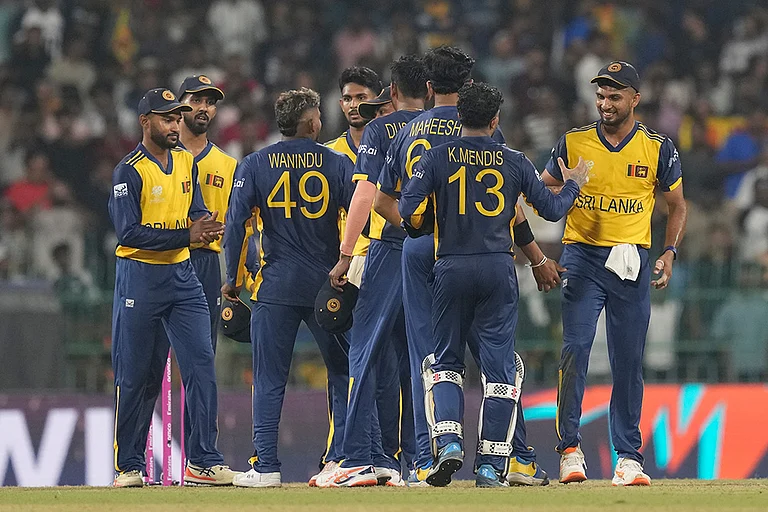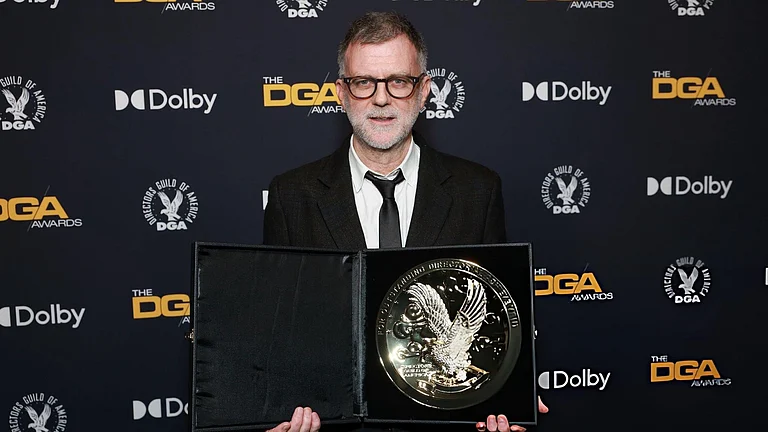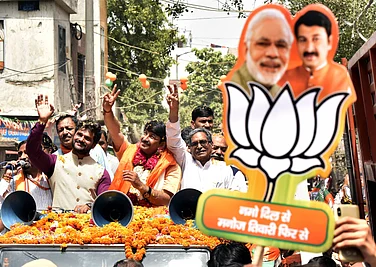Courtesy, People's Democracy dated June 29
As the time for the ninth meeting of the UPA-Left Committee on the nuclear deal approached, the country was plunged into a political crisis once again on the future of the nuclear deal. What is the cause for this ongoing crisis?
The answer lies squarely in the prime minister's renewed bid to go to the IAEA for seeking the approval of the Board of Governors on the text of the Safeguards Agreement. This is an essential step for taking the Indo-US nuclear deal forward and for operationalising the 123 Agreement.
Violation of November Understanding
The urgency to approach the Board of Governors of the IAEA runs contrary to the understanding arrived at in November 2007 between the Congress and the Left leadership. This understanding was that the government would go to the IAEA for talks with the Secretariat but not proceed to get the Board's approval. The outcome of the talks would be reported to the UPA-Left Committee for its consideration and for arriving at the findings of the Committee. The Left had explicitly stated that without its concurrence there should be no step forward on the IAEA front. This was acknowledged by the Congress leadership.
This understanding was incorporated in the sixth meeting of the UPA-left Committee held on November 16, 2007. The statement issued after the meeting stated:
"The government will proceed with the talks and the outcome will be presented to the Committee for its consideration before it finalises its findings.
"The findings of the Committee will be taken into account before the operationalisation of the India-US Civil Nuclear Cooperation Agreement."
In May, during the eighth meeting of the UPA-Left Committee, the demand was raised by the UPA side that the government should be allowed to approach the Board of Governors for approval of the text. The Committee was still engaged in discussions on the Safeguards Agreement. The Left parties had raised a number of issues regarding the text. But the text was not placed before the Committee on the plea that it was classified. The Committee has not arrived at any conclusions on the nature of the Safeguards Agreement nor has the Committee reached its findings after which only the government can think of proceeding.
Bush Plan
What is the urgency for going to the Board of Governors of the IAEA at this juncture? The reason behind it is the insistence of the Bush administration that India complete the procedures for the Safeguards Agreement with the IAEA so that the Americans can take the step of formally initiating the process in the Nuclear Suppliers Group (NSG) to get the waiver for nuclear trade with India. The Bush administration knows very well that there is no time for the 123 Agreement to be passed by the current US Congress. By the time the NSG clearance is got it will be too late for the US Congress to consider and adopt the 123 law. President Bush wants to ensure in the last few discredited months of his presidency that at least the Indo-US nuclear deal will remain as a legacy to be taken up by the next president. This will have somecertainty if the NSG clearance is got before his term expires.
It is this schedule set out by the United States which is impelling the prime minister to go ahead regardless of the consequences.
The tactics adopted has been to try and get the Left to agree piecemeal to a step by step operationalisation of the 123 Agreement. The Left is being told that once it agrees to go to the Board of Governors, the government won't proceed further. This is similar to the promise made of not going beyond the negotiations with the Secretariat made in November 2007. Everyone knows that under the Indo-US nuclear cooperation agreement, the United States has the responsibility to shepherd India's case in the NSG of which India is not a member. This was confirmed by the prime minister in his /suo moto/ statement on India's separation plan to parliament in March 7, 2006. He said:
"The United States government has accepted this Separation Plan. It now intends to approach the US Congress for amending its laws and the Nuclear Suppliers Group for adapting its Guidelines to enable full civilian cooperation between India and the international community."
NSG-Next Step
It is a fact that the consultation process in the Nuclear Suppliers Group has already been initiated by the United States. In September 2007, the Bush administration presented a Pre-decisional Draft titled "Submission of Civilian Nuclear Cooperation with India" to an informal meeting of the NSG. It is learnt that a revised note has been submitted subsequently. As explained by the former chairman of the Nuclear Suppliers Group, Abdul S Minty, who stepped down only recently in May 2008,
"The NSG has not formally considered this matter. It can only start the procedure once the Safeguards Agreement is complete with the IAEA. The way it will go will be that the US would make a request formally for an exemption and once we have the wording and see the implications of that wording for all the members of the NSG, then they will be in a position to judge what they should do." Interview with science editor of NDTV, published in /The Hindu /of June 14, 2008)
The informal consultations will get formalised when the Board's approval is taken. So the Board's approval is a necessary step to take the process of operationalisation of the nuclear deal forward.
The UPA side has been trying to convince the Left that the IAEA Board's approval is being taken keeping in mind that it will open the way for nuclear cooperation with Russia and France. It is posed as if the 123 Agreement is off the agenda. Nothing can be further from the truth. In February 2008, Nicholas Burns, US Under Secretary of States, had stated categorically that the United States would not get the NSG to give exemption to India in a "worst case scenario" of the 123 Agreement being bypassed and India trying to engage in nuclear commerce with other countries. So the "passport" which is being sought can be nothing but an "American passport".
Push for Strategic Alliance
The CPI(M) and the Left parties have consistently opposed the nuclear deal on the basis that the Hyde Act on which the 123 Agreement is based nullifies all the assurances given by the prime minister in August 2006 in parliament. The nuclear deal has wide-ranging ramifications for India's foreign policy and security affairs.
It is astonishing that the UPA government and the Congress leadership have sought to push through a strategic alliance with the United States when it knows very well that the Left will never be party to this. The conflict began with the signing of the Defence Framework Agreement in June 2005 and the struggle of the Left to prevent such a strategic alliance cemented through the nuclear deal has been waged for the last three years.
Hence there will be no compromise on the issue of the government approaching the IAEA Board for approval of the Safeguards Agreement.
A honest and credible stand that can be taken by the government even at this stage is that there is no political consensus on such a vital international agreement. In such circumstances, the government is not proceeding further with the deal, even though it is convinced that the deal is good for the country. The December 2007 debate in parliament in fact showed that a majority of members are against proceeding with the deal.
Priority to Tackle Price Rise
The country has been plunged into this crisis at a time when there is raging inflation and galloping price rise making the lives of the ordinary people unbearable. The government has abjectly failed to curb price rise. The country is watching the spectacle of a leadership which is obsessed with its vision of becoming a strategic partner of the United States and fulfilling its commitment to an American president who is reviled around the world and has the least credibility within his own country. If the priorities of our country and the people are kept in mind, the government should be engaged on a war footing to curb inflation and price rise and take urgent measures to provide relief to the people. But the last fortnight has exposed what the priorities of the government are.
This is a situation which can be exploited by the BJP and other communal forces. One can only hope that the Congress leadership will realise the serious consequences of pursuing a pro-US line which can only benefit the rightwing communal forces in the country.
























